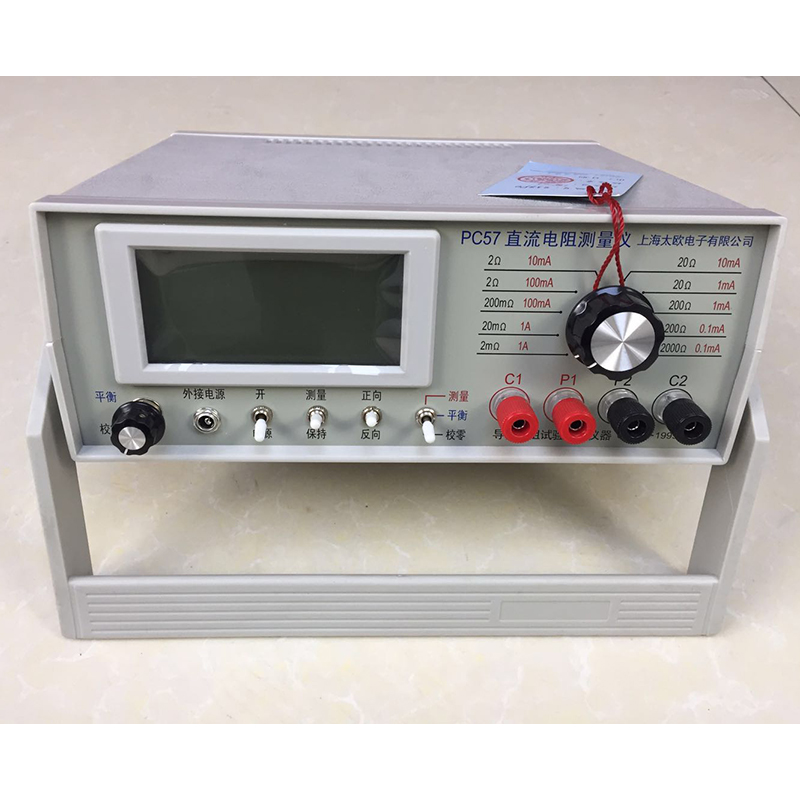resistance tester electrical factory
Understanding Resistance Testers in Electrical Factories
In the world of electrical engineering, the resistance tester plays a vital role in ensuring the safety and reliability of electrical installations
. In electrical factories, where precision and safety are paramount, these devices are indispensable tools for engineers and technicians alike.A resistance tester, also known as an insulation resistance tester, measures the resistance of electrical insulation. This is crucial for preventing electrical failures that can lead to equipment damage, production downtime, and even hazardous situations. The functioning of electrical systems relies heavily on the integrity of insulation materials, making resistance testing a key component of routine maintenance and commissioning processes.
In an electrical factory, resistance testers are used extensively during the manufacturing and quality control phases. When electrical equipment is produced, it undergoes rigorous testing to ensure it meets industry standards. Resistance testers help identify potential weak points in insulation that could lead to short circuits or other electrical failures later on. By conducting these tests, factories can ensure that their products are reliable and safe for consumer use.
The operation of a resistance tester is relatively straightforward. The device applies a specific voltage to the insulation under test and measures the resulting current flow. From this data, the resistance can be calculated using Ohm’s Law. A higher resistance value indicates better insulation, while a lower value may signal a deterioration or failure in the insulation material. Many modern resistance testers also come equipped with digital displays, data logging capabilities, and various test voltages, allowing for enhanced testing versatility.
resistance tester electrical factory

One significant aspect of using resistance testers in factories is the adherence to safety standards. Electrical safety regulations stipulate regular testing of insulation resistance to prevent electrical shocks and fires. Factories that produce electrical components must maintain stringent testing schedules to comply with these regulations, ensuring both worker safety and product integrity.
Additionally, resistance testers are valuable during the installation of electrical systems. After installation, it is crucial to verify that all insulation is intact before the system is powered up. This pre-commissioning test prevents potential failures that could occur if faulty insulation is overlooked.
The digital transformation in industrial settings has led to advancements in resistance testing technology. With the advent of IoT (Internet of Things), some modern resistance testers can now transmit data wirelessly to centralized monitoring systems, enabling real-time analysis and reporting. This integration allows for quicker identification of issues and facilitates proactive maintenance, which can save factories considerable time and resources.
In conclusion, resistance testers are essential tools in electrical factories, vital for ensuring the safety, reliability, and quality of electrical installations. By consistently performing resistance tests, factories not only adhere to safety regulations but also enhance their overall operational efficiency. As technology continues to advance, the capabilities of resistance testers will further improve, making them even more valuable in the quest for safe and reliable electrical systems.
-
Why the Conductor Resistance Constant Temperature Measurement Machine Redefines Precision
NewsJun.20,2025
-
Reliable Testing Starts Here: Why the High Insulation Resistance Measuring Instrument Is a Must-Have
NewsJun.20,2025
-
Flexible Cable Flexing Test Equipment: The Precision Standard for Cable Durability and Performance Testing
NewsJun.20,2025
-
Digital Measurement Projector: Precision Visualization for Modern Manufacturing
NewsJun.20,2025
-
Computer Control Electronic Tensile Tester: Precision and Power for the Modern Metal Industry
NewsJun.20,2025
-
Cable Spark Tester: Your Ultimate Insulation Assurance for Wire and Cable Testing
NewsJun.20,2025
 Copyright © 2025 Hebei Fangyuan Instrument & Equipment Co.,Ltd. All Rights Reserved. Sitemap | Privacy Policy
Copyright © 2025 Hebei Fangyuan Instrument & Equipment Co.,Ltd. All Rights Reserved. Sitemap | Privacy Policy
